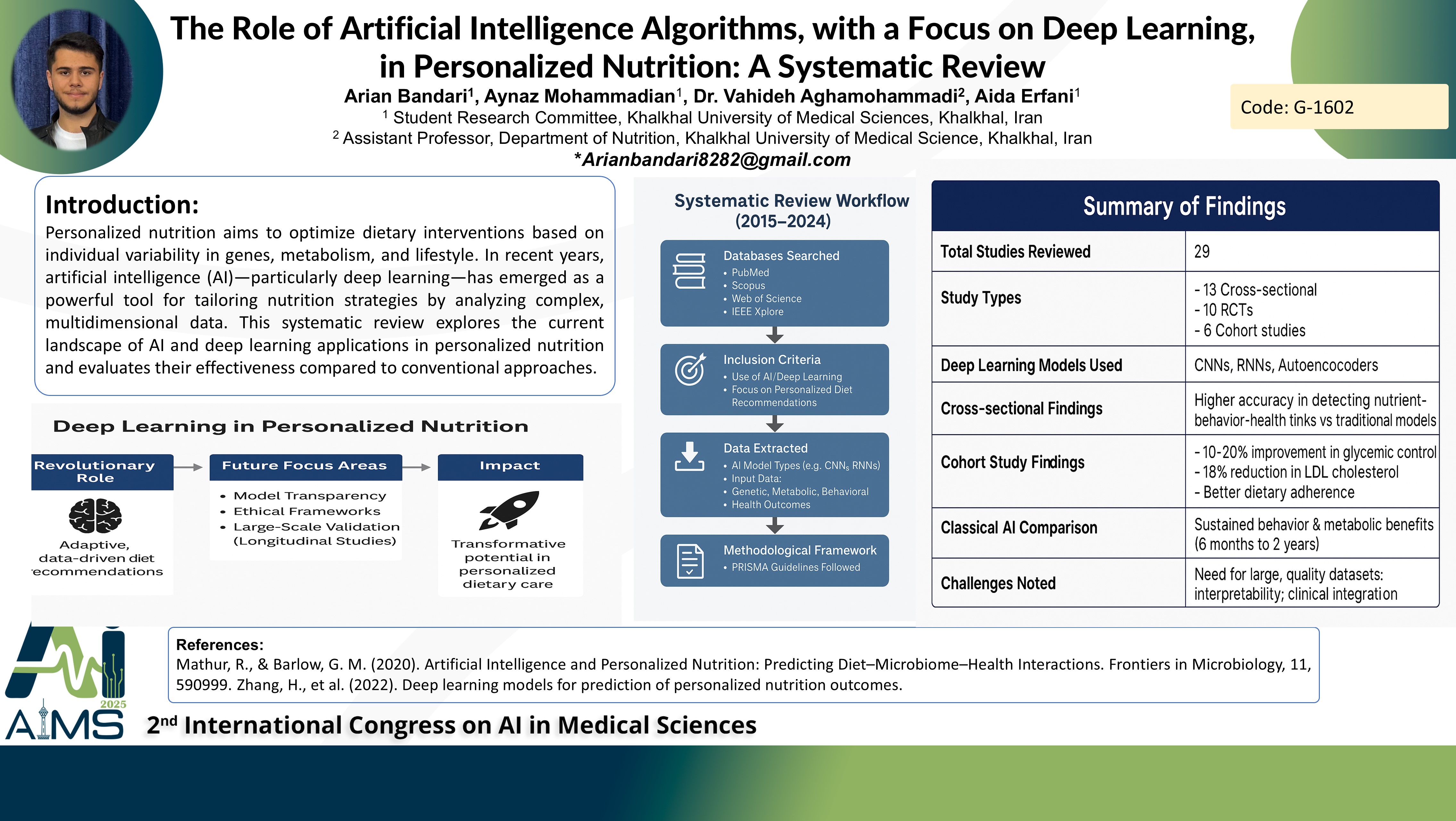The Role of Artificial Intelligence Algorithms, with a Focus on Deep Learning, in Personalized Nutrition: A Systematic Review
Code: G-1602
Authors: Arian Bandari * ℗, Aynaz Mohammadian, Aida Erfani, Dr. Vahideh Aghamohammadi
Schedule: Not Scheduled!
Tag: Cancer Diagnosis & Treatment
Download: Download Poster
Abstract:
Abstract
Background: Personalized nutrition aims to optimize dietary interventions based on individual variability in genes, metabolism, and lifestyle. In recent years, artificial intelligence (AI)—particularly deep learning—has emerged as a powerful tool for tailoring nutrition strategies by analyzing complex, multidimensional data. This systematic review explores the current landscape of AI and deep learning applications in personalized nutrition and evaluates their effectiveness compared to conventional approaches. Methods: A systematic search was conducted across PubMed, Scopus, Web of Science, and IEEE Xplore for studies published between 2015 and 2024. Inclusion criteria targeted studies that employed AI algorithms, particularly deep learning models, to generate personalized dietary recommendations. Data extraction focused on model types, input data (e.g., genetic, metabolic, behavioral), and measured health outcomes. PRISMA guidelines were followed throughout the review process. Results: Twenty-nine studies met the inclusion criteria, comprising 13 cross-sectional analyses, 10 randomized controlled trials (RCTs), and 6 longitudinal cohort studies. Deep learning architectures—such as convolutional neural networks (CNNs), recurrent neural networks (RNNs), and autoencoders—were frequently utilized to integrate heterogeneous datasets. Cross-sectional studies (n=13) demonstrated that deep learning-based models could identify complex nutrient-behavior-health interactions with higher accuracy than traditional models. RCTs (n=10) reported significant improvements in personalized diet outcomes, including a 10–20% enhancement in glycemic control, 18% reduction in LDL cholesterol, and increased adherence to dietary interventions. Cohort studies (n=6) highlighted sustained behavioral changes and metabolic benefits over periods ranging from 6 months to 2 years. Comparatively, classical AI models (e.g., decision trees, SVMs) showed lower predictive precision and adaptability. Despite their promise, deep learning models require large, high-quality datasets and face challenges in interpretability and clinical integration. Discussion and Conclusion: Deep learning is revolutionizing personalized nutrition by enabling data-driven, adaptive dietary recommendations. To ensure widespread adoption, future efforts should focus on improving model transparency, establishing ethical frameworks, and validating performance through large-scale, longitudinal studies. This review underscores the transformative potential of AI in advancing individualized dietary care.
Keywords
Deep Learning, Artificial Intelligence, Personalized Nutrition
